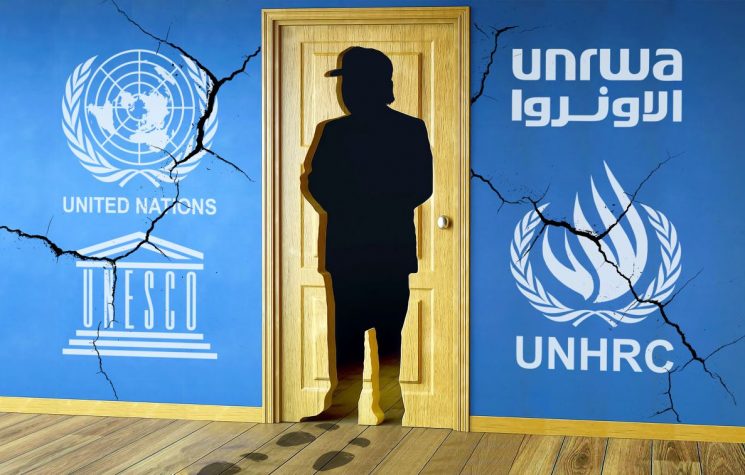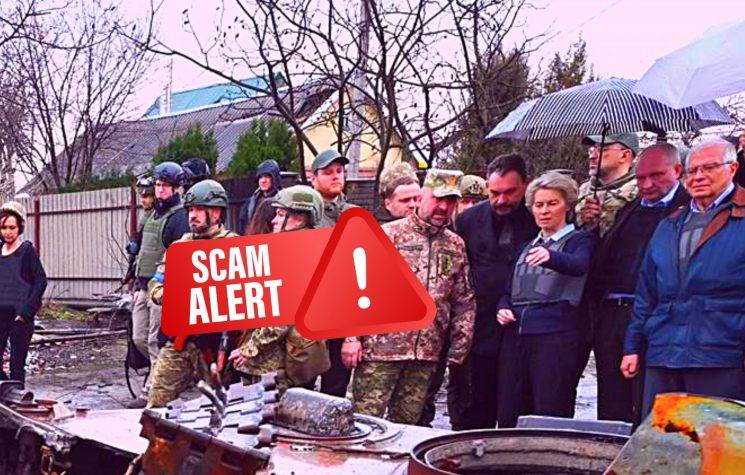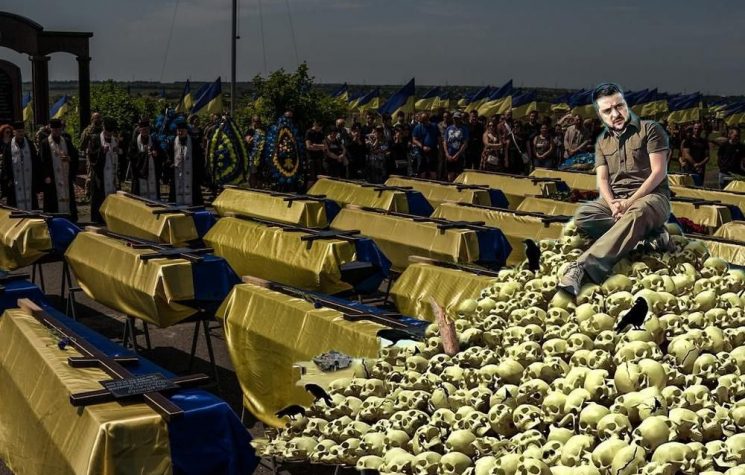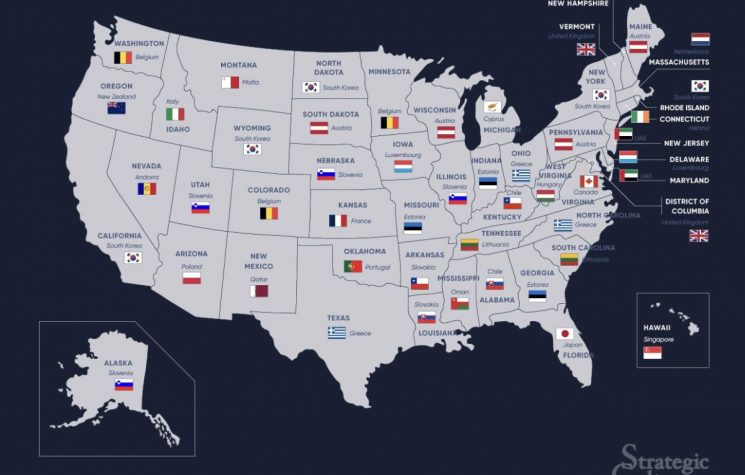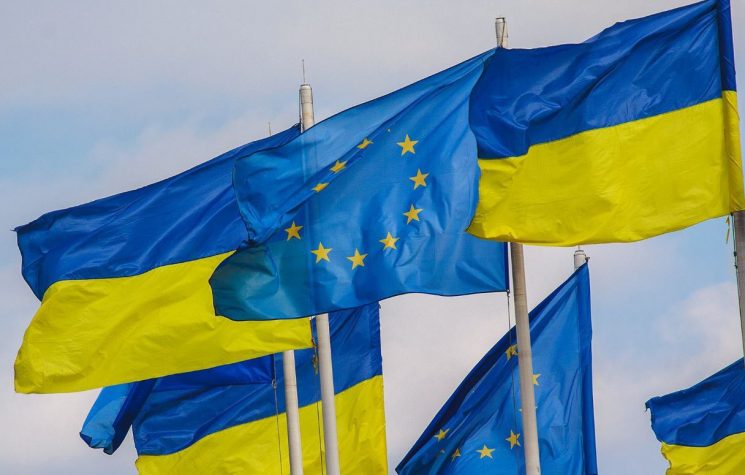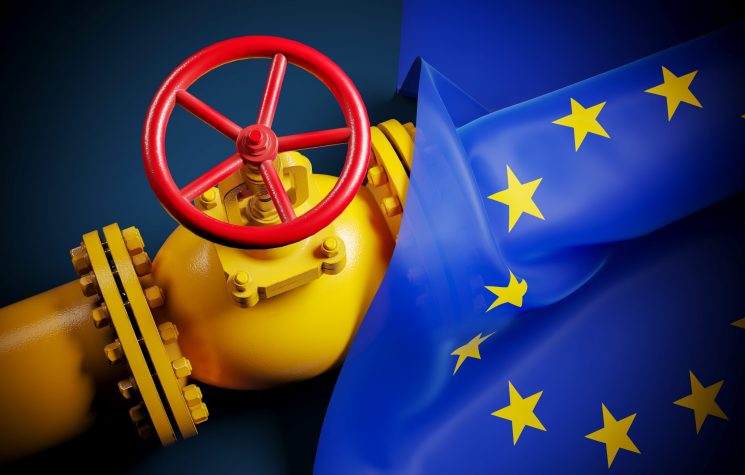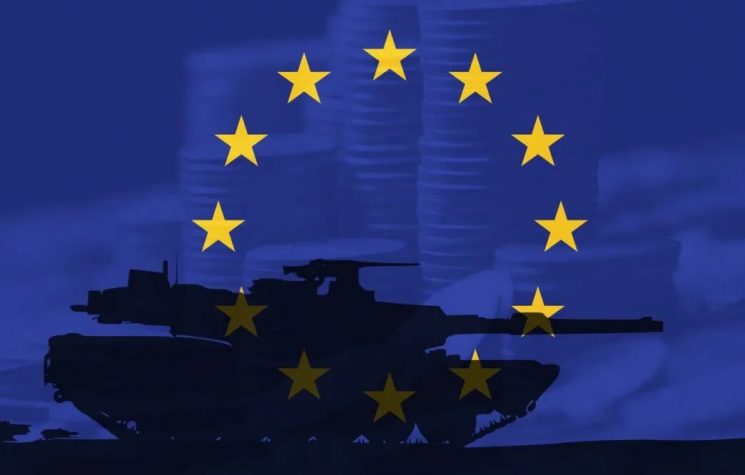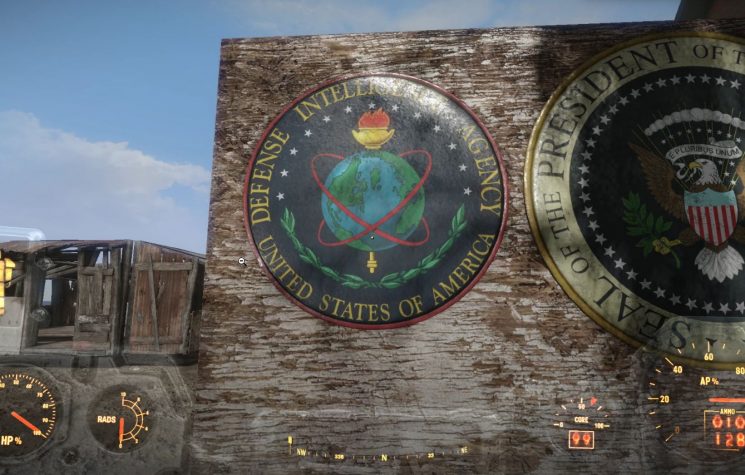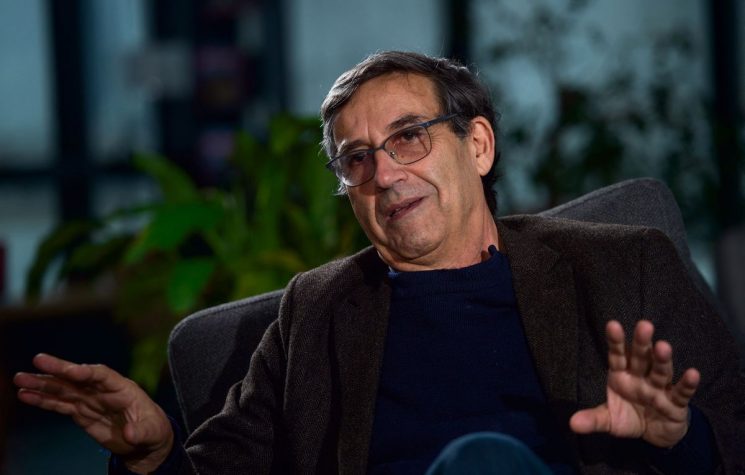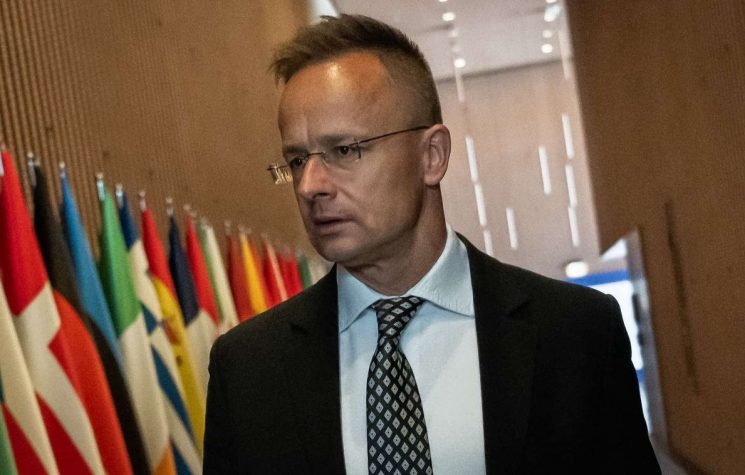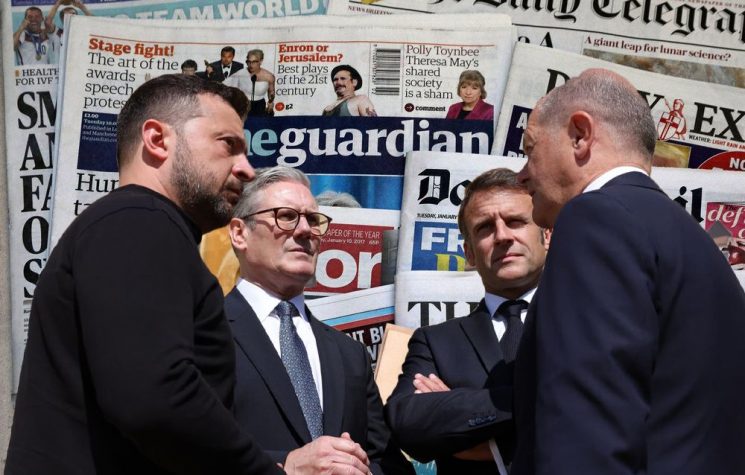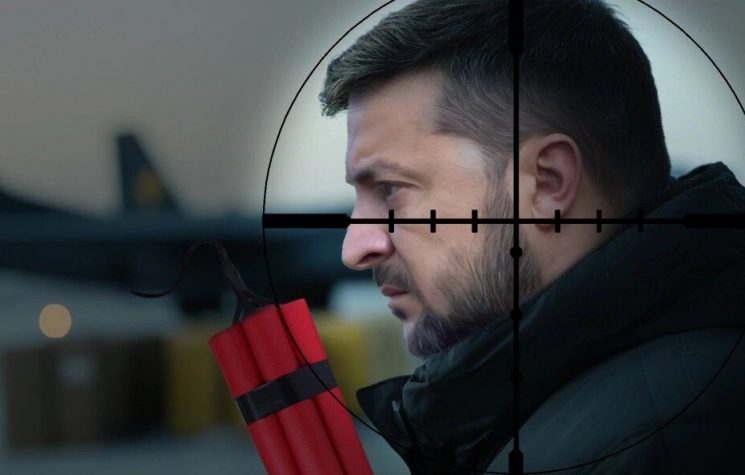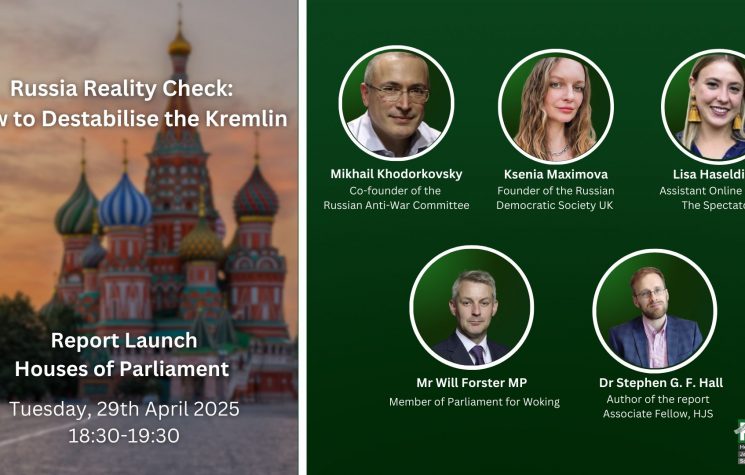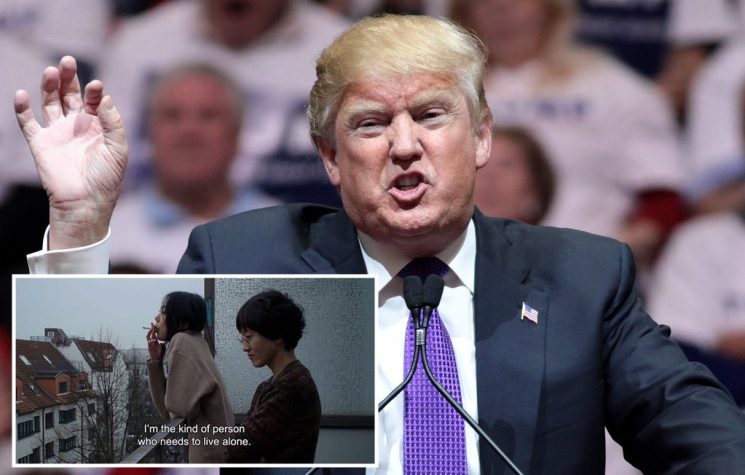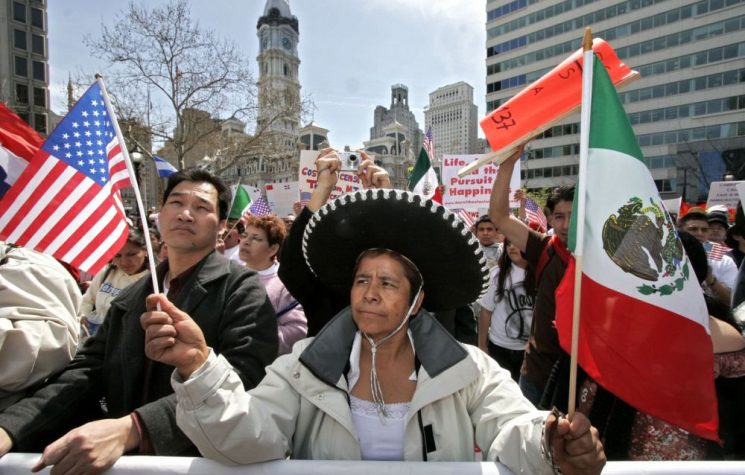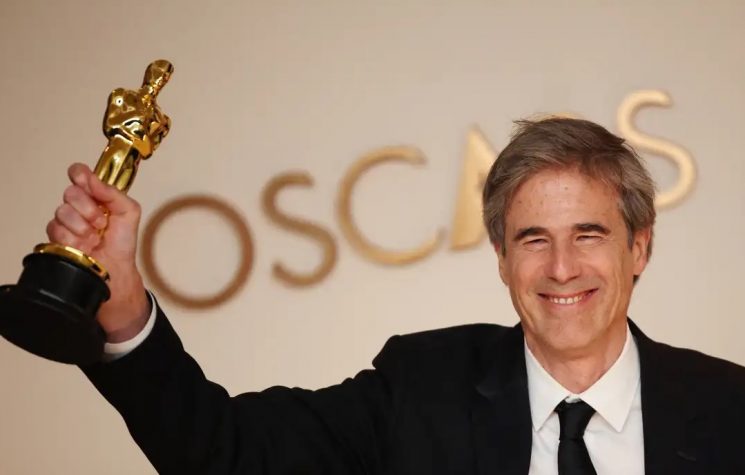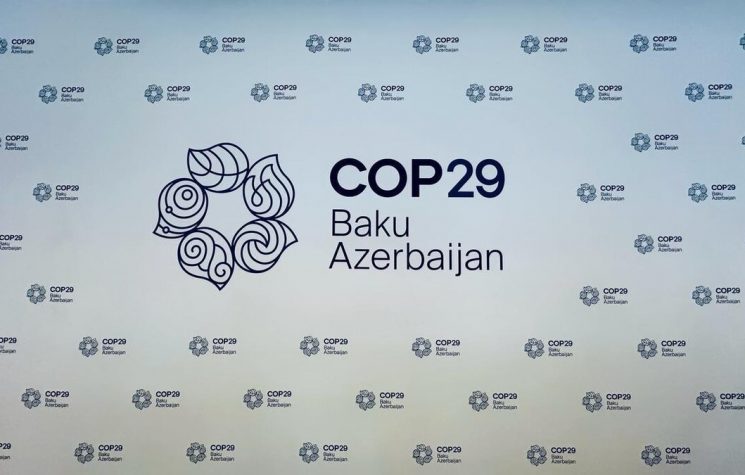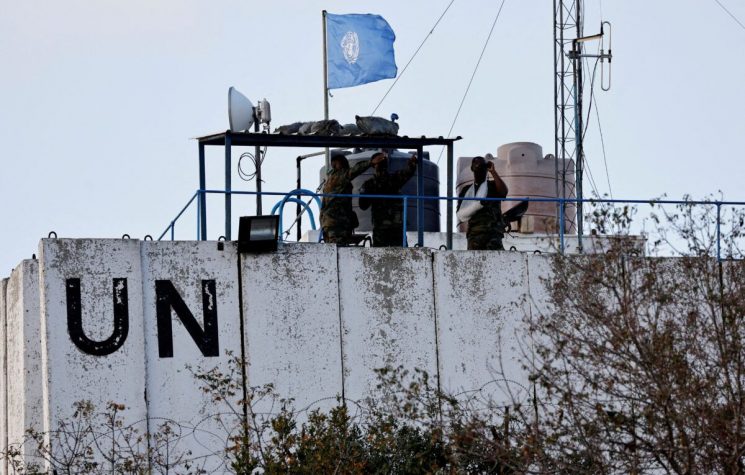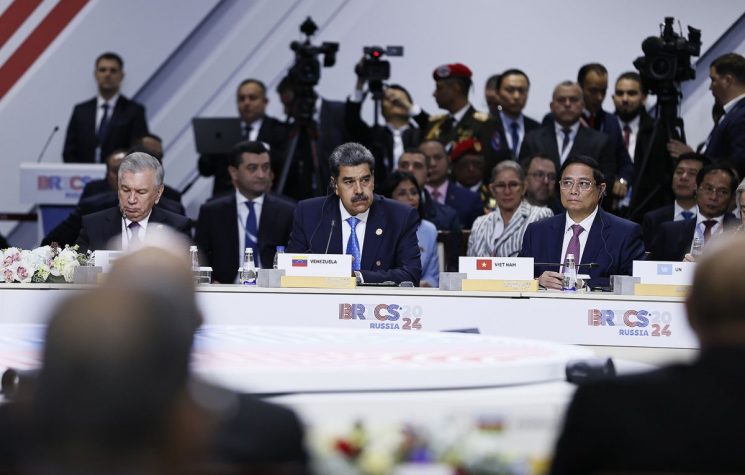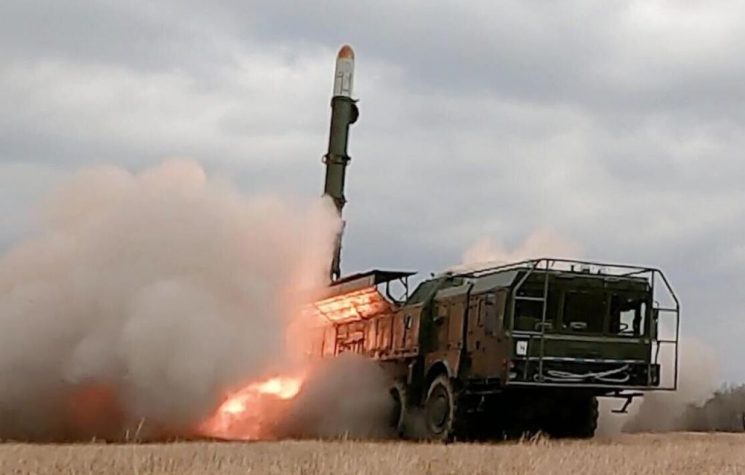Can a West of shared, cultural like-mindedness ‘imagine itself’ into total cultural war against the values of Russia?
❗️Join us on Telegram ![]() , Twitter
, Twitter![]() , and VK
, and VK ![]() .
.
“The rules-based international order has not been this imperilled since the 1930s”, writes Professor of Foreign Affairs, Walter Russell Mead:
“The UN was supposed to be the crown jewel of the rules-based order … but lately [it] has sunk to new lows. Among the five permanent members of the Security Council, only Joe Biden bothered to show up for the General Assembly last week. Emmanuel Macron was too busy … [and] Rishi Sunak was the first [UK] prime minister in a decade to skip the annual meeting. Mr. Putin and China’s Xi Jinping also ditched the U.N. meeting …There was a time when people would have cared …”.
Had you been watching images broadcast from the General Assembly, when Zelensky was speaking, you would have seen the auditorium was almost entirely empty, or, at best, a third full. Prime Minister Netanyahu also addressed the GA, as did Chancellor Scholtz, who again addressed a bare handful of delegation note-takers.
The crux of it is, there is no excitement. No-one in the Global Majority is particularly interested to listen to western leaders, with their litany of cultural fixations, whilst their societies’ ‘Life’ problems spiral down into real crisis. “Boring” was how one commentator described western discourse; “the real excitement is in Asia”.
Such comments reflect how – to outside observers – western politics has become the dreary takeover of state institutions by high or middle-ranking bureaucrats, with the remit to enforce new cultural/moral norms, with little or no mass participation or protest. These bureaucratic ‘revolutionaries’ re-fashion old state institutions to transform the state from the top-down, in in pursuit of a Gramscian-like cultural hegemony.
Initially they may accomplish this without violating the old system’s laws and constitutions, but increasingly this is what is done today. At this some point on this journey, altruism is lost, and law is weaponised against the people.
The general ennui – so visible at the UNGA – stems from the ruling strata’s failure to provide purposeful, reasonable or effective solutions, at a time of palpable crisis.
In an article in the Wall Street Journal, Editor-at-Large, Gerard Baker writes that the current cultural moral order is “already crumbling”:
“This new edifice has been built around three principal pillars: First, the ethical primacy of global obligation – over national self-interest, but most directly, and consequentially, in a rejection of the morality of national borders – and an embrace of something like open-door immigration.
“Second, a quasi-biblical belief in climate catastrophism, in which man’s essential energy-consuming sinfulness can be expiated only by massive sacrifice of economic progress.
“Third, a wholesale cultural self-cancellation in which the virtues, values and historic achievements of traditional civilization are rejected and replaced by a cultural hierarchy that inverts old prejudices and obliges the class of white, male heterosexuals to acknowledge their history of exploitation and submit to comprehensive social and economic reparation”.
“Each of these three pillars throughout the West – on three continents – is crumbling”, writes Baker. Maybe so. But there is little sign of the cultural zealots backing down. Rather, they double-down. It has become an existential issue – with western ‘traditionalists’ seeing cultural issues as almost a life-or-death situation. It is a bruising binary struggle.
Nonetheless, what shines through is that the globalists’ revolutionary zeal apparently remains undimmed. The globalist objective, firstly, remains to hasten the advent of a wider global community subscribed to their new moral order – one of Diversity, Pride, Trans-rights, and the redress of historic discrimination and wrongs.
The second objective is to oversee the assimilation of other nation-states into this new Cultural sphere of conformity and homogeneity via a ‘Rules-Based Order – one which stipulates a universal ‘Moral’ content as its sub-text.
These two objectives have been reflected in a vast expansion of Western (especially American) democracy-promotion efforts to promulgate this new culturalism.
This vision was underpinned by two key happenings: The implosion of the Soviet Union, and the concomitant publication of Francis Fukuyama’s End of History and the Last Man, which argued that a linear upward human progression – based in western political, economic and cultural models – was our inexorable human destiny.
However, democracy-promotion was nothing new. And just to be clear, Europe’s early experiments in revolutionary democratisation had their distinctly dark and bloody side (just as colour revolutions have had theirs). Gordon Hahn has noted,
“France’s revolutionary leaders had signalled to where their movement would lead: but few seemed to heed their words. As they slaughtered tens of thousands and forcefully drafted over a million Frenchmen into the first mass conscript army … they openly stated they were doing so to spread democratic republicanism by violence”.
“France threw down the gauntlet of revolution at the feet of all of Europe’s monarchs. Organizer of the French revolutionary army, Lazare Carnot, warned the world: “No more manoeuvres, no more military art, but fire, steel, and patriotism. We must exterminate! Exterminate to the bitter end!”
Thomas Jefferson believed that the French Revolution’s fate would determine that of his own – and hoped that the former would spread across Europe. And though he deplored the carnage, Jefferson thought it necessary. In January 1793, he said: “The liberty of the whole earth was depending on the issue of the contest and … rather than it should have failed. I would have seen half the earth desolated”. (Enthusiasm he later recanted).
Carnot’s successor, Napoleon Bonaparte, realized the revolutionaries’ imperial dreams, which were not focussed so much on democracy, but on his own (and French) glory.
In fact, it was Napoleon who created the first state hegemony based on a universal ‘Order’ founded in law and regulation. In 1803, Napoleon’s army of 600,000 invaded Russia. Matters came to an end with a Russian march on Paris, and the forming of the Concert of Europe, putting an end to the Bonaparte hegemony. In essence, the French Revolution that spread ‘total war’, the nation-state idea, and a revolutionary ethos has plagued both Russia and the West ever since.
Jumping forward to our post WW2 era, U.S. revolutionism, in the first instance, was based in the ‘Victory Ethos’ derived from America’s Cold War ‘success’ (rooting-out communism from European states, and folding Eastern Europe into NATO). The full blown ‘cultural/moral agenda’ only emerged with the Obama-Biden administrations.
And it was in this context that the West lusted for Ukraine, as the hinge around which Russia might be thwarted. Brzezinski had identified Ukraine as Russia’s potential Achilles’ Heel, precisely Ukraine’s ethnic-cultural divisions that could be exploited to weaken Russia. This point is crucial for determining the impulse behind the Ukraine war today.
The Ukraine war is not about ‘democracy promotion’. Western intelligence services have had a history of close links with Ukrainian ultra-nationalism, dating from the end of WW2. Possibly, these committed ultra-nationalists were seen as ideal material for stirring a war against everything Russian – that which Brzezinski had in mind when the wrote his Grand Chessboard in 1997.
In any event, it was on this particular pillar – ethnic-cultural mobilisation vs the Russian presence, culture and language in Ukraine – that western intelligence services focussed. Efforts were made by these services and U.S. State Department to place members of this constituency into key positions in politics, security and the military in Ukraine – initiatives that were accelerated in the wake of the Maidan coup.
An evident legacy now is that Zelensky is hamstrung by the political primacy of the hard Right that refuses any, and all, negotiations with Russia, and demands only Moscow’s surrender.
Last week’s Canadian parliamentary debacle inadvertently gave an insight into the depth of the Ultra-nationalist Ukrainian constituency that was given passage to western states – including to the U.S. and Canada – in the wake of WW2, when Canada’s Parliament accorded standing ovations to a former member of the Waffen SS during a visit by Zelensky to the Canadian Parliament. Yaroslav Hunka was among around 600 members of the Galicia SS Division who were allowed to settle in Canada after the war. The point here is that this constituency in Canada, and its analogues elsewhere, forms a backbone to lobbyist support for Kiev, and is the one most closely tied to the U.S. Deep State.
Back to the Brzezinski doctrine: Does this Canadian imbroglio remind us that the sub-plot originally conceived by Brzezinski was identity-driven cultural war? Certainly, Ukrainian officials have embraced repeatedly, the aim of cleansing all things Russian from Ukraine. Democracy promotion may have been a pretext, but the quiet part always was to foment violent animosity towards Russians – and to Russia, as a cultural ‘idea’.
This raises an important question: Can a West of shared, cultural like-mindedness ‘imagine itself’ into total cultural war against the values of Russia?
Might the goal of Western leaders over the last year and a half been to use Ukrainian ultra-nationalism to provoke a wider war of cultural identity with Russia, via their Ukrainian proxy?
Perhaps, in Putin’s scrupulous care to avoid giving the West a bloody shirt to wave (despite endless reasons to do so), he reflects an understanding that components of the West’s current leadership are dangerously aggressive and actively seeking war.
We hear echoes today of Jefferson’s 1793 sentiments in some quarters: “The liberty of the whole earth was depending on the issue of the contest and … rather than it should have failed. I would have seen half the earth desolated”. We see vestiges of Jefferson too in Brussels’ leaders’ conspicuous and over-zealous flag-waving of Ukrainian colours and cultural symbols intended to underline the values’ divide with ‘autocratic’ Russia.
The point here is that does the seed of a revolutionary, all or nothing, cultural and identity war, signal an ultimate intent? Historically, total war easily jumps the shark of democratic altruism, as the flames of ethnic hatred take hold.
Fortunately, it seems that this cataclysmal outcome is likely to be avoided, as the Ukrainian offensive folds. Russians however, will not forget the animus showed by many Europeans to Russia, its sports men and women, its artistes and others.
The ultimate impetus of the western hawks’ intentions behind this war must be left for history to divine.








